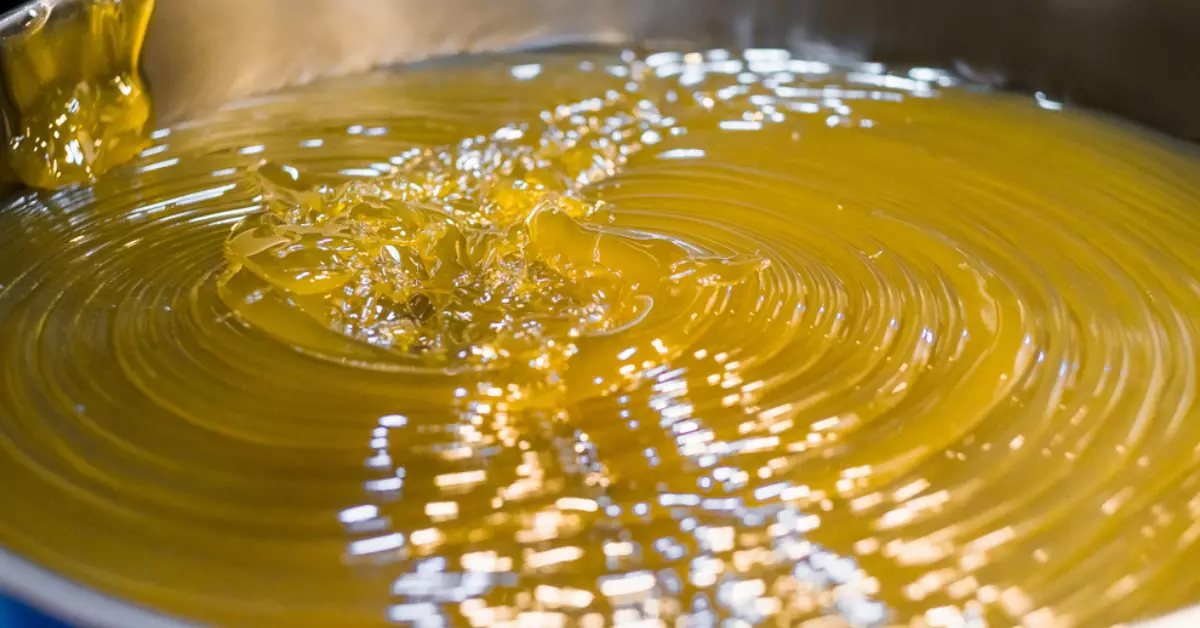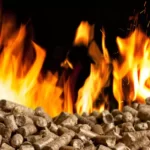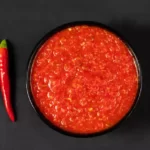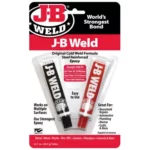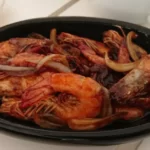Cooking grease and oil disposal is a conundrum every household encounters. Proper handling and disposal can save you from unnecessary plumbing bills and contribute to a healthier environment. Yet, it’s one area where misinformation abounds, with many succumbing to harmful practices like outdoor dumping of grease.
Outdoor grease dumping is not an environmentally friendly disposal method. It can harm local wildlife, plant life, and contribute to soil and water contamination. Opting for appropriate disposal methods is crucial in maintaining the ecological balance and preventing potential health risks.
Grease and cooking oil, while seemingly harmless, can pose a serious threat to our environment when not properly disposed of. This article delves deep into the reasons behind it and how to adopt eco-friendly practices for grease disposal.
The Environmental Implications of Incorrect Grease Disposal
Impact on Wildlife and Plant Life
Incorrect grease disposal, especially outdoor dumping, can have devastating effects on wildlife and plant life. Animals may consume the grease, leading to health problems. Additionally, grease can smother plants, affecting their ability to photosynthesize, and leading to their eventual death.
Soil and Water Contamination
When dumped outside, grease can seep into the soil, hindering its ability to absorb water and leading to water run-off during rains. Moreover, grease can find its way into nearby water bodies, causing water pollution and affecting aquatic life.
Is It Ok To Dump Grease Outside?
Cooking oil and grease are often the unnoticed pollutants that many of us inadvertently contribute to. The question about the feasibility of dumping grease outdoors is often asked. However, the direct and emphatic answer is, no, it’s not okay.
The Facts About Outdoor Grease Dumping
Outdoor grease dumping is a practice that can seem harmless, particularly when viewed from the perspective of a single household. However, the environmental impact when such practices are replicated across hundreds and thousands of households can be quite significant.
Grease is a substance rich in fat, which means it doesn’t break down naturally as other organic substances do. This is one of the core reasons why it poses such a threat to the environment. When dumped outside, the grease remains in the environment for a prolonged period, and during this time, it can cause numerous problems.
These problems range from soil contamination to attracting pests, as the grease can serve as a food source for various insects and rodents. With repeated grease dumping, the area can become a hotspot for pests, leading to infestations that can be difficult to control.
Moreover, when it rains, the grease can get washed into stormwater drains. These drains typically lead to natural bodies of water, such as rivers, streams, or even the ocean, where the grease can cause water pollution, harming aquatic life.
The Potential Harm Caused by Outdoor Grease Dumping
The harm caused by outdoor grease dumping isn’t restricted to environmental damage. It has more far-reaching effects. For example, the pests attracted by the grease can carry diseases, posing a risk to human health.
Also, the grease that gets washed into natural water bodies can cause blockages in water systems. Over time, these blockages can lead to an increase in flooding, affecting local infrastructure and potentially causing significant damage.
Additionally, grease can suffocate plants by creating a film on the soil surface that prevents air and water from penetrating. This can kill off local vegetation and disrupt local ecosystems, which rely on these plants for food and shelter.
Even from a community standpoint, outdoor grease dumping can lead to unpleasant odors and sights, detracting from the beauty and enjoyment of local outdoor spaces.
Common Mistakes in Grease and Cooking Oil Disposal
Avoiding harmful disposal practices is the first step in adopting eco-friendly habits. Here are a few common mistakes that people often make when disposing of grease and cooking oil.
Pouring Grease Down the Drain
Many households adopt the method of pouring used cooking oil or grease down the drain. While this may seem like an easy and convenient way to get rid of the waste, it can have detrimental effects on your plumbing system.
When poured down the drain, the grease does not simply flow along with the water. Instead, it cools down, solidifies, and adheres to the pipes’ inner walls. Over time, the grease accumulates, reducing the pipes’ diameter, disrupting water flow, and eventually leading to blockages.
The result is often costly plumbing repairs. Even worse, if the blockage occurs in the public sewer system, it could affect an entire neighborhood, leading to even greater costs and inconveniences.
Disposing Grease in the Garden
Another common mistake is trying to compost cooking grease and oil or using it as a fertilizer in the garden. It’s important to understand that grease and oil are not compostable materials. They do not break down in compost piles as other organic materials do.
In fact, adding them to a compost pile or garden soil can be counterproductive. They create a barrier that prevents the necessary air and moisture from reaching the compost or soil, affecting the composting process or soil health.
Throwing Grease in the Trash
At first glance, throwing grease in the trash might seem like an okay option. But the issue arises when the grease is not properly contained. If just thrown into the garbage bin, the grease can leak out, contaminating other waste and attracting pests.
It can also make the job of waste management workers more difficult and unpleasant. Furthermore, when the grease reaches the landfill and eventually leaks out, it can contaminate local soil and groundwater.
To correctly dispose of grease in the trash, it should be poured into a sealable, non-recyclable container, like a used tin can or a glass jar. Once the grease cools down and solidifies, the container can be sealed and then thrown into the garbage bin.
Proper Methods for Grease and Cooking Oil Disposal
Adopting proper grease disposal methods is an effective way to mitigate the environmental and health risks posed by improper disposal. Here are a few recommended methods:
Repurposing Cooking Grease and Oil
One way to minimize waste is to find new uses for used cooking oil or grease. For example, cooking oil can often be reused. After cooking, let the oil cool down, strain it to remove any food particles, and store it in a clean container for future use.
But remember, cooking oil can’t be reused indefinitely. Over time, it breaks down and starts producing smoke at lower temperatures. When that happens, it’s time to dispose of the oil.
As for cooking grease, especially the ones from meat, they can be used to make homemade bird feed. The grease can be mixed with seeds to create a high-energy food source for birds, particularly in the colder months.
However, keep in mind that this should be done in moderation, as too much grease is not good for birds either. It’s also recommended to only feed this to birds in colder temperatures, as the grease can go rancid in warm weather.
Disposal in Sealed Containers
For cooking oil or grease that can no longer be reused, one of the best disposal methods is in a sealed container. Non-recyclable containers like glass jars or tin cans are perfect for this.
Simply pour the used oil or grease into the container. Once it’s filled, seal the container and dispose of it in your regular household trash. This method ensures that the oil or grease is contained, minimizing the risk of leaks and contamination.
Utilizing Local Waste Disposal Services
Another responsible method for disposing of used cooking oil or grease is to take advantage of local waste disposal services. Many cities provide these services as part of their waste management programs.
The collected oil and grease are often recycled and converted into biodiesel, a renewable source of energy. This method of disposal not only helps protect the environment but also contributes to energy production, showcasing the potential in what we often see as waste.
Steps to Clean Up Accidental Grease and Oil Spills
Despite our best efforts, accidents can happen, and oil or grease spills are no exception. But knowing how to properly clean up can help minimize the damage.
The Immediate Response to Spills
The immediate response to a grease spill is crucial in preventing further contamination. Here are the steps to follow:
- Start by containing the spill. You can do this by placing absorbent materials, such as paper towels or cat litter, around the spill to prevent it from spreading.
- Next, carefully remove the bulk of the spill. Depending on the size, this could involve scooping up the grease or soaking it up with absorbent materials.
- Dispose of the used absorbent materials in a sealable, non-recyclable container, just as you would with used cooking oil or grease.
Cleaning and Containment Methods
Next, clean the spill area with warm soapy water to remove any remaining grease. Make sure to dispose of the used cleaning materials correctly to avoid further contamination.
The Role of Local Regulations and Policies
Importance of Understanding Local Rules
Local regulations for grease disposal can vary. Therefore, it’s essential to be aware of your local rules and guidelines to ensure compliance.
Consequences of Non-compliance
Failure to comply can lead to penalties and fines. Moreover, non-compliance can contribute to environmental harm, affecting your community’s overall health and wellbeing.
Frequently Asked Questions
What happens if I pour grease down the drain?
Pouring grease down the drain can lead to plumbing issues. The grease can solidify and cause blockages in your pipes, leading to potential water back-ups and expensive repairs.
Can I compost grease or cooking oil?
No, grease and cooking oil should not be composted. They can interfere with the composting process and negatively impact the quality of your compost.
Are there any eco-friendly uses for used cooking oil or grease?
Yes, used cooking oil can be reused several times before disposal. Additionally, some people use cooking grease to make homemade soap or bird feed. There are also waste disposal services that can convert used cooking oil into biodiesel.
Conclusion
Irresponsible grease disposal, including outdoor dumping, can lead to environmental harm and potential health risks. Thus, it is crucial to adopt eco-friendly disposal practices and abide by local regulations.
Many suitable alternatives are available for safe grease disposal, from repurposing and recycling to using local waste disposal services. Employing these methods can help maintain a healthy environment and prevent potential problems linked to incorrect grease disposal.
Ending on a note of shared responsibility, it’s worth realizing that every small step towards proper grease disposal can have a significant impact on our environment. Let’s strive together to make our world a healthier place, one grease disposal at a time.

